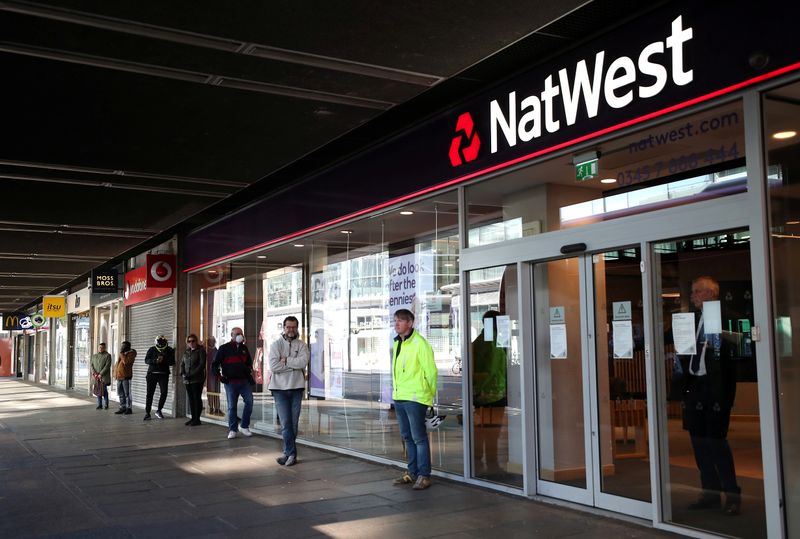By Iain Withers and Sinead Cruise
LONDON (Reuters) - Only 10 British banks have signed up to an industry-wide plan for collecting unpaid emergency COVID-19 loans, with more than a dozen including HSBC considering going it alone, sources told Reuters.
UK Finance is setting up a central body to co-ordinate collecting unpaid loans to help its members cope with a forecast surge in defaults and to protect individual lenders from allegations of unfair treatment of customers.
But just 10 of the 23 lenders that have granted more than 42 billion pounds of 'bounce back' loans (BBLs) to small businesses have so far backed the plan, a source told Reuters.
Some were keen to agree a consistent approach in an effort to avoid a re-run of past mistreatment scandals that blighted banks including Lloyds (LON:LLOY) and NatWest after the financial crisis.
The National Audit Office estimated in October that 15% to 80% of the BBLs, worth up to 50,000 pounds each, may never be repaid, depending on the extent of Britain's economic recovery.
While fully state guaranteed, lenders have agreed to take steps to recover unpaid monies before the government pays out. A total of 29 lenders are BBL accredited, of which six are subsidiaries of larger firms.
Those on board are Lloyds, NatWest, Barclays (LON:BARC), Santander (MC:SAN), TSB, Danske, Metro Bank, Bank of Ireland UK, Allied Irish UK and Virgin Money (LON:VM), the source said.
Among those not to have signed up, HSBC is by far the biggest, alongside the Co-op Bank, Starling, Investec, Paragon and Arbuthnot Latham.
"The detailed design of a centralised debt-recovery service is still in development in order to provide a consistent approach to the handling of outstanding Bounce Back Loans, however individual lenders may want to take their own view to recoveries," a UK Finance spokesperson said.
A source familiar with HSBC's thinking said the bank was considering all options on how to best support customers and any final decision would have to go through the bank's governance procedures.
A spokesperson said Starling was evaluating its options, while Arbuthnot declined to comment. The other lenders were not immediately available for comment.
Sources close to two lenders said the scheme did not look like value for money, they had reputational risk concerns and thought they could do a better job in-house.
"If you're a big bank and in the habit of employing people to employ people to do this perhaps it makes sense, but we don't have the money to throw at this," one said.
"There was a hell of a rush (on BBLs) - given the volume and speed there could well be reputational issues. The cost-benefit would not be worth it for us," a senior banker at another said.
Banks have been grappling with how to deal with BBL defaults, with an earlier TheCityUK proposal for a state-run debt recovery body rebuffed by government. The issue is gaining urgency as the first loans come up for repayment in May.
The proposed body would dole out packages of unpaid BBLs to a panel of approved debt collections agencies to chase, with consultancy EY working with UK Finance on the plans.
One source close to the project said the bulk of BBLs would be covered and they were confident most businesses would receive consistent and fair treatment, adding that the first phase was complete with the project moving into the advanced design phase.
